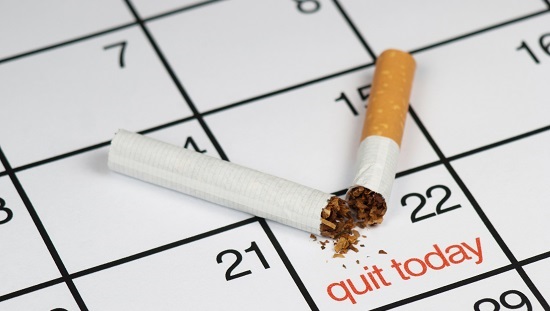Quit Smoking

While some people are successful in quitting smoking cold turkey or gradually reducing the number of cigarettes they smoke, others may need some additional help.
Across the University of Maryland Medical System, many of our hospitals provide resources to help you quit smoking.
Find Smoking Cessation Help Near You
- Anne Arundel County
- Baltimore City
- Baltimore County
- Eastern Shore
- Charles County
- Harford County
- Prince George's County
Also, check with your employer and health insurance company to find a support group that fits your needs. Or call the American Cancer Society at 1-800-227-2345.
If you have smoked for 20 years, please consider getting a lung cancer screening. Find a lung cancer screening program near you.
Ways to Quit Smoking
Progressive Reduction
This method involves gradually reducing the number of cigarettes you smoke. Using this technique, smokers use nicotine gum to help them steadily cut cigarette use until they are no longer smoking at all.
Nicotine Replacement Products
There are many types of products — patches, gum and lozenges — you can buy over the counter (OTC) that can help you slowly decrease nicotine intake, which can decrease withdrawal symptoms.
Smoking Cessation Medications
In addition to over-the-counter products such as nicotine gum, lozenges or patches that can help reduce your cravings, your primary care doctor can also prescribe medication.
Smoking cessation prescription medications include:
- Inhalers and nasal sprays - Both nicotine inhalers and nicotine nasal sprays require a doctor's prescription. They can be combined with OTC nicotine patches.
- Bupropion (Zyban) – This antidepressant, approved by the FDA to help people quit smoking, helps to reduce cravings for nicotine as well as withdrawal symptoms.
- Varenicline tartrate – This drug, which blocks the effects of nicotine in the brain, is approved by the FDA to help people quit smoking. It blocks the release of dopamine and helps ease cravings for nicotine.
Don't have a primary care provider (PCP)? Find a PCP near you.
Text and Phone Programs
- Smokefree.gov offers a variety of text messaging programs that offer encouragement around the clock.
- The Maryland Tobacco Quitline, 1-800-QUIT-NOW (1-800-784-8669), provides free help in quitting. Run by the Maryland Department of Health and Mental Hygiene, the 24/7 program uses effective evidenced-based counseling to assist Marylanders ages 13 years and older in quitting tobacco use. For more information or to enroll in the program, visit www.SmokingStopsHere.com.
Quit Smoking Apps
There are a number of apps you can download to help you quit. The types of offerings vary widely — ranging from online community support to game techniques to tracking craving patterns.
All of these are free to download, but most also offer or require in-app purchases.

